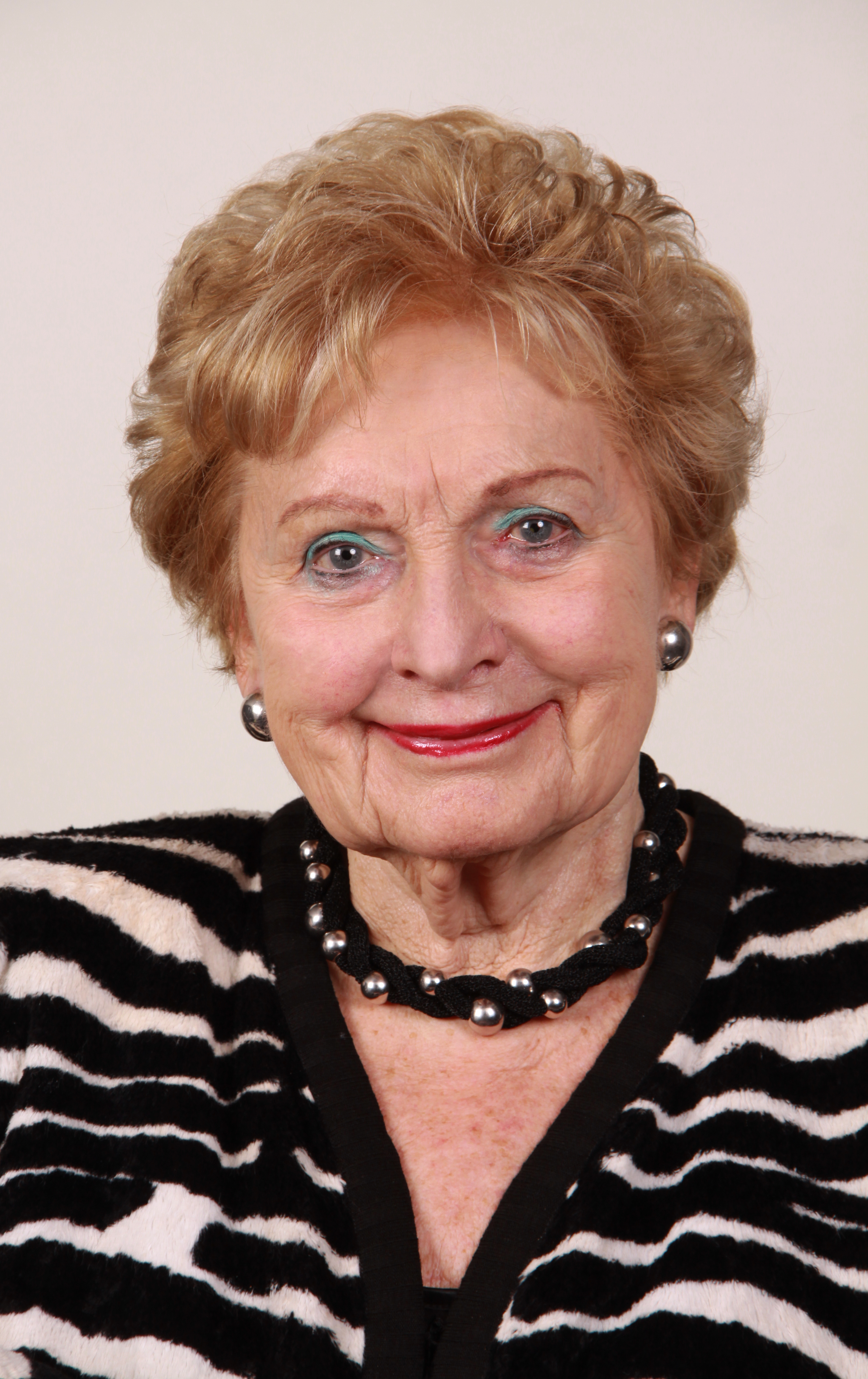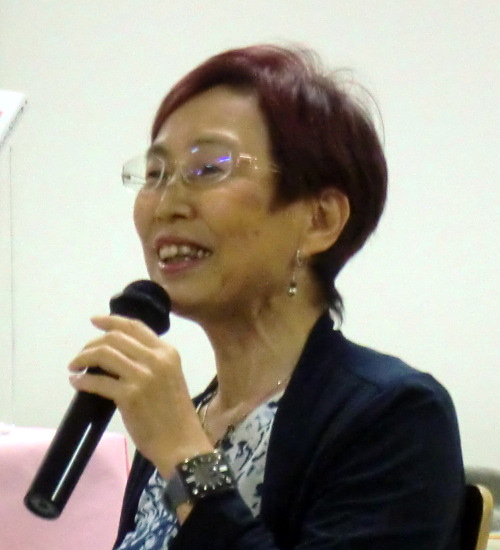|
Marguerite Thomas-Clement
Marguerite Thomas-Clement (1886–1979) was a Luxembourg women's rights activist and politician. She was the first woman to serve in Luxembourg's parliament. She was married to the socialist Xavier Thomas, and was herself a member of the socialist party. There was never any organized women's suffrage movement in Luxembourg: women's suffrage was introduced in 1919 without any debate, as a part of the project of the new democratic constitution, and women's rights organizations mainly focused on educational opportunities. However, in 1917-1919, Marguerite Thomas-Clement was one of the few who spoke in favor of women's suffrage in public debates through articles in the press. In 1919, the first election after women's suffrage, she became the first woman elected to parliament, where she served until 1931. She remained the only woman parliamentarian until Astrid Lulling in 1965. During her tenure, she tried to defend the rights of female workers and prostitutes. References * Renée Wage ... [...More Info...] [...Related Items...] OR: [Wikipedia] [Google] [Baidu] |
Luxembourg
Luxembourg ( ; lb, Lëtzebuerg ; french: link=no, Luxembourg; german: link=no, Luxemburg), officially the Grand Duchy of Luxembourg, ; french: link=no, Grand-Duché de Luxembourg ; german: link=no, Großherzogtum Luxemburg is a small landlocked country in Western Europe. It borders Belgium to the west and north, Germany to the east, and France to the south. Its capital and most populous city, Luxembourg, is one of the four institutional seats of the European Union (together with Brussels, Frankfurt, and Strasbourg) and the seat of several EU institutions, notably the Court of Justice of the European Union, the highest judicial authority. Luxembourg's culture, people, and languages are highly intertwined with its French and German neighbors; while Luxembourgish is legally the only national language of the Luxembourgish people, French and German are also used in administrative and judicial matters and all three are considered administrative languages of the cou ... [...More Info...] [...Related Items...] OR: [Wikipedia] [Google] [Baidu] |
Women's Suffrage
Women's suffrage is the right of women to vote in elections. Beginning in the start of the 18th century, some people sought to change voting laws to allow women to vote. Liberal political parties would go on to grant women the right to vote, increasing the number of those parties' potential constituencies. National and international organizations formed to coordinate efforts towards women voting, especially the International Woman Suffrage Alliance (founded in 1904 in Berlin, Germany). Many instances occurred in recent centuries where women were selectively given, then stripped of, the right to vote. The first place in the world to award and maintain women's suffrage was New Jersey in 1776 (though in 1807 this was reverted so that only white men could vote). The first province to ''continuously'' allow women to vote was Pitcairn Islands in 1838, and the first sovereign nation was Norway in 1913, as the Kingdom of Hawai'i, which originally had universal suffrage in 1840, r ... [...More Info...] [...Related Items...] OR: [Wikipedia] [Google] [Baidu] |
Astrid Lulling
Astrid Lulling (born 11 June 1929, in Schifflange) is a politician in Luxembourg. She was a Member of the European Parliament (1965–1974 and 1989–2014) for the Christian Social People's Party, part of the European People's Party. Positions held * Member of the Parliament's Bureau. * Member of the Quaestors. * Member of the Committee on Economic and Monetary Affairs. * Member of the Committee on Women's Rights and Gender Equality. * Member of the Delegation for relations with the countries of Central America. * Member of the Delegation to the Euro-Latin American Parliamentary Assembly. * Substitute of the Committee on Agriculture and Rural Development. * Substitute of the Delegation for relations with the countries of Southeast Asia and the Association of Southeast Asian Nations (ASEAN). Curriculum vitae :* Studied political economy at the University of Saarbrücken (1953–1955). :* Secretary and editor of the Luxembourg Workers' Union (1949–1963). :* Worked for the ... [...More Info...] [...Related Items...] OR: [Wikipedia] [Google] [Baidu] |
Renée Wagener
Renée Wagener (born 1962) is a journalist, sociologist, historian, and former politician in Luxembourg. She served for 10 years in the country's Chamber of Deputies as a member of The Greens. Early life and education Renée Wagener was born in 1962 in Luxembourg City, the capital of Luxembourg. Beginning in 1997, she pursued an advanced degree in sociology, taking correspondence courses at the University of Hagen in Germany. She wrote her master's thesis on "The History of Women's Right to Vote in Luxembourg" and her doctoral thesis on "The Jewish Community in Luxembourg, Between Recognition and Exclusion." Career Journalism and academia Wagener works as a journalist for the weekly newspaper '' Woxx'', as well as for various media outlets as a freelance writer and announcer. She has also worked on historical research at the University of Luxembourg. She writes primarily on feminist topics, as well as sociology and history. In 1997, she co-edited the history of women's ... [...More Info...] [...Related Items...] OR: [Wikipedia] [Google] [Baidu] |
1886 Births
Events January–March * January 1 – Upper Burma is formally annexed to British Burma, following its conquest in the Third Anglo-Burmese War of November 1885. * January 5– 9 – Robert Louis Stevenson's novella ''Strange Case of Dr Jekyll and Mr Hyde'' is published in New York and London. * January 16 – A resolution is passed in the German Parliament to condemn the Prussian deportations, the politically motivated mass expulsion of ethnic Poles and Jews from Prussia, initiated by Otto von Bismarck. * January 18 – Modern field hockey is born with the formation of The Hockey Association in England. * January 29 – Karl Benz patents the first successful gasoline-driven automobile, the Benz Patent-Motorwagen (built in 1885). * February 6– 9 – Seattle riot of 1886: Anti-Chinese sentiments result in riots in Seattle, Washington. * February 8 – The West End Riots following a popular meeting in Trafalgar Square, London. * F ... [...More Info...] [...Related Items...] OR: [Wikipedia] [Google] [Baidu] |
1979 Deaths
Events January * January 1 ** United Nations Secretary-General Kurt Waldheim heralds the start of the ''International Year of the Child''. Many musicians donate to the ''Music for UNICEF Concert'' fund, among them ABBA, who write the song ''Chiquitita'' to commemorate the event. ** The United States and the People's Republic of China establish full Sino-American relations, diplomatic relations. ** Following a deal agreed during 1978, France, French carmaker Peugeot completes a takeover of American manufacturer Chrysler's Chrysler Europe, European operations, which are based in United Kingdom, Britain's former Rootes Group factories, as well as the former Simca factories in France. * January 7 – Cambodian–Vietnamese War: The People's Army of Vietnam and Vietnamese-backed Kampuchean United Front for National Salvation, Cambodian insurgents announce the fall of Phnom Penh, Cambodia, and the collapse of the Pol Pot regime. Pol Pot and the Khmer Rouge retreat west to an area ... [...More Info...] [...Related Items...] OR: [Wikipedia] [Google] [Baidu] |
Luxembourgian Women's Rights Activists
Luxembourgish ( ; also ''Luxemburgish'', ''Luxembourgian'', ''Letzebu(e)rgesch''; Luxembourgish: ) is a West Germanic language that is spoken mainly in Luxembourg. About 400,000 people speak Luxembourgish worldwide. As a standard form of the Moselle Franconian language, Luxembourgish has similarities with other varieties of High German and the wider group of West Germanic languages. The status of Luxembourgish as an official language in Luxembourg and the existence there of a regulatory body have removed Luxembourgish, at least in part, from the domain of Standard German, its traditional . History Luxembourgish was considered a German dialect like many others until about World War II but then it underwent ausbau, that is it created its own standard form in vocabulary, grammar and spelling and therefore is seen today as an independent language, an ausbau language. Due to the fact that Luxembourgish has a maximum of some 285,000 native speakers, resources in the language lik ... [...More Info...] [...Related Items...] OR: [Wikipedia] [Google] [Baidu] |
Luxembourgian Feminists
Luxembourgish ( ; also ''Luxemburgish'', ''Luxembourgian'', ''Letzebu(e)rgesch''; Luxembourgish: ) is a West Germanic language that is spoken mainly in Luxembourg. About 400,000 people speak Luxembourgish worldwide. As a standard form of the Moselle Franconian language, Luxembourgish has similarities with other varieties of High German and the wider group of West Germanic languages. The status of Luxembourgish as an official language in Luxembourg and the existence there of a regulatory body have removed Luxembourgish, at least in part, from the domain of Standard German, its traditional . History Luxembourgish was considered a German dialect like many others until about World War II but then it underwent ausbau, that is it created its own standard form in vocabulary, grammar and spelling and therefore is seen today as an independent language, an ausbau language. Due to the fact that Luxembourgish has a maximum of some 285,000 native speakers, resources in the language lik ... [...More Info...] [...Related Items...] OR: [Wikipedia] [Google] [Baidu] |
Socialist Feminists
Socialist feminism rose in the 1960s and 1970s as an offshoot of the feminist movement and New Left that focuses upon the interconnectivity of the patriarchy and capitalism. However, the ways in which women's private, domestic, and public roles in society has been conceptualized, or thought about, can be traced back to Mary Wollstonecraft's ''A Vindication of the Rights of Woman'' (1792) and William Thompson's utopian socialist work in the 1800s. Ideas about overcoming the patriarchy by coming together in female groups to talk about personal problems stem from Carol Hanisch. This was done in an essay in 1969 which later coined the term 'the personal is political.' This was also the time that second wave feminism started to surface which is really when socialist feminism kicked off. Socialist feminists argue that liberation can only be achieved by working to end both the economic and cultural sources of women's oppression. Socialist feminism is a two-pronged theory that broadens ... [...More Info...] [...Related Items...] OR: [Wikipedia] [Google] [Baidu] |



_(cropped_v2).jpg)


